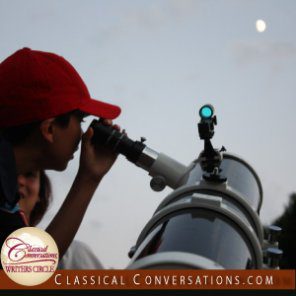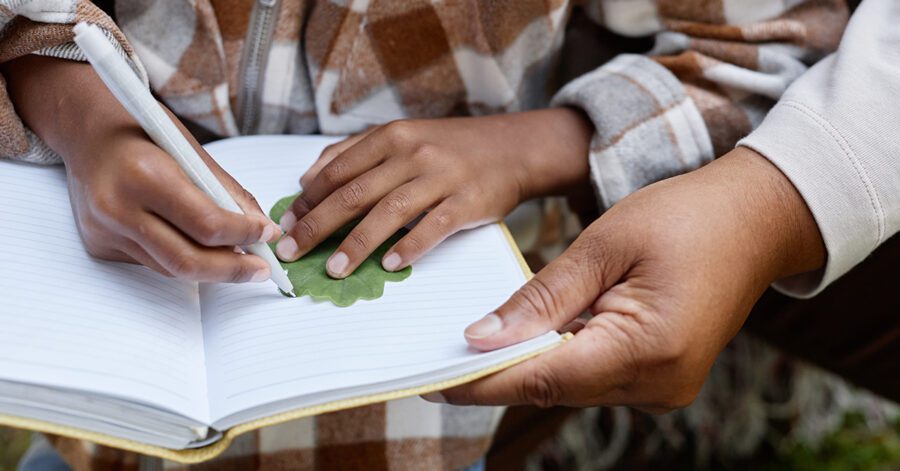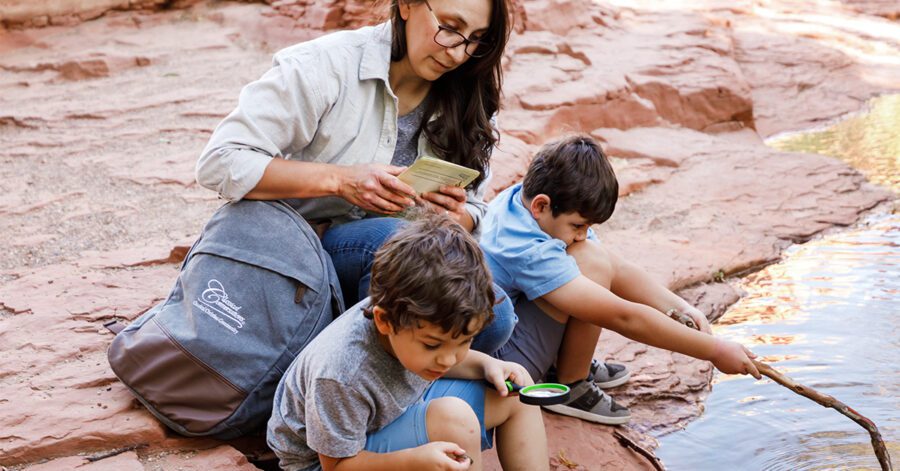What do you believe about children and learning? In any learning environment we consider—public, private, or home school— some children seem to enjoy learning while others seem to be bored or frustrated by it. Parents and teachers will go to great lengths to make learning fun, enticing children to enjoy learning. They might even attempt to bribe the child into learning with prizes, gifts, or payments. Some people believe children are born with either a natural affinity or aversion to learning. Others believe they are born with a desire to learn but are nurtured into the aversion to learning. I want to propose that all children are born with a desire to learn (one that has to be trained out of them), using these three arguments: historical precedence, nurture’s evidence, and nature’s demands.
Historical precedence is an argument by which I mean the observations of educators, academics, and thinkers of the past. Aristotle wrote, “All men by nature desire to know.” It is certainly possible that Aristotle was writing something that he believed to be true, yet was not. However, it is unlikely that this observation could be false in an age that produced so many great scholars, thinkers, writers, adventurers, discoverers, scientists, mathematicians, and artists. Are we to believe that they just happened to give birth to more children with a natural affinity for learning than we produce today?
Nurture’s evidence is the idea that today’s model of education is one that nurtures, or trains, the natural desire to know right out of our children. By nature, children desire to know, and we take that love for learning away from them with our educational methods. It can be as simple as reducing learning to something you do because it is practical. If we reduce some of the things they learn to something they have to know to get a good job or be productive members of society, it will not be long before they conclude that this is all learning is for. As soon as they encounter a subject or a lesson that has no obvious practical application, they will balk against learning it and we will not be far behind them in questioning it ourselves. It can get worse, however, when we mistakenly reduce learning to its practical benefits by connecting it—very early on—to a reward system: I learn this because I get candy or money for it. As children get older, they will make that same connection not to candy they get immediately, but to the paycheck they will get as adults. Learning is once again reduced to the pragmatic.
Learning is more than something we do for its fiscal benefits. Learning is something we do for its own sake, its own end. Learning is something we do because it elevates our ability to think and understand on a higher, more mysterious plane.
Learning is something we do because it aids in remaking us in the likeness of God, as we come to understand Him, His creation, His Word, His Church, His providence all the more.
Nature’s demands are those things that tell us how children like to learn and how we can nurture that natural affinity for learning rather than squelch it. Dorothy Sayers’s essay, “The Lost Tools of Learning,” is an excellent example of what demands nature makes in a child. By “nature,” here, I am referring to the child’s nature. Sayers makes the connection between young children and the art of grammar, young teens and the art of dialectic, and teenagers and the art of rhetoric. Classical Conversations founder Leigh Bortins explains the connection in her book, Echo in Celebration. The better and more consistently we teach our children in accordance with their nature, using the art of grammar when they—by nature—enjoy it most, using the art of dialectic when they enjoy it most, and using the art of rhetoric when they enjoy it most, the less likely we are to squelch their natural desire for knowledge, and the less likely we are to create in them an aversion to learning. Using the “lost tools of learning” that Sayers and now Classical Conversations are helping us to use, we encourage their natural desire for knowledge; these tools are to their natural curiosities what gasoline is to a blazing fire.
The first tool parents are equipped with in educating their children is the art of grammar. This art is most enjoyed by our children when they are of elementary age. They enjoy the predictability (and, therefore, the order and harmony) that comes from repeated chanting and singing of facts. The art of grammar gives them the opportunity to memorize vast amounts of information related to a subject or a series of subjects without regard for their relationships. They are collecting facts at a time when they are only interested in collecting facts. Children at this age are not as interested in seeing the relationships that develop between these facts as, say, we are. This allows them to focus on the accumulation of facts without being slowed down like we are. As a result, they can memorize far more efficiently than we can. The need to see these relationships will come when their desire to see them comes as well. This tool by itself does not a discoverer make, but it does make someone who will be very good at Jeopardy.
The second tool that parents are equipped with in educating their children is the art of dialectic. This art is most enjoyed by our children when they are young teens of junior high age. They enjoy the argument and debate that comes from discovering and examining the relationships between the facts they previously memorized. With this tool, our children take the facts they have collected, and through the process of comparing, relating, arguing, debating, contemplating, and discussing, they distill these facts into truths— timeless truths. These truths, however, are not something we force-feed to them through lectures, but something they discover for themselves through this process—a process that is primarily built on the constant asking of questions by the student and tutor or parent. And the dialectic process itself is something that is done in accordance with their nature at that age. The lecture experience, however, goes against the grain of their natural desire for learning. Using the dialectic tool whets the appetite of discovery, preparing the young learner to be a future discoverer. The lecture, on the other hand, is like telling a child everything has been discovered and there is nothing left for them to do but sit there and listen to a recitation of all that has been discovered.
The third tool that parents are equipped with in educating their children is the art of rhetoric. This art is most enjoyed by our children when they are teens of high school age. They enjoy trying to effect specific opinions from others. Unfortunately, the only tool our culture gives them for this purpose is their appearance. Thus, many high school-aged children become obsessed with acquiring the right shoes, the right clothes, and the right hairstyle. The art of rhetoric teaches them to use different tools—eloquent speech, persuasive communication, beautiful words, and honorable actions—to effect specific opinions from others, opinions not just about the student but also about the truths they distilled with the art of dialectic.
The student who learns how to become a discoverer through the arts of grammar and dialectic is a student who learns how to speak well regarding, and act rightly with, their discoveries. The mastery of this final art and the sense of accomplishment that accompanies it complete the process of raising a discoverer. These students will not be able to help but continue the journey of discovery with anything that is set before them, anything that piques their curiosity.
On the other hand, the student who is educated apart from these tools and who is never truly equipped with them is the student who goes through his educational journey thinking there is nothing left to discover, only things left to be told. And what if they do not want to hear what the teacher is saying? One path leads to a student waiting to be told what to do, and the other leads to a student on an adventure to find whatever is there to be discovered.
All children are born with a desire to learn (one that has to be trained out of them) as historical precedence, nurture’s evidence, and nature’s demands make clear. Today’s world needs adventurers, discoverers, writers, mathematicians, artists, and musicians such as the world before us knew. Classical Conversations and the tools of learning will encourage our children in their natural desire to know, and may just lead to a generation unlike any this world has seen in a very long time.




